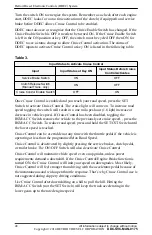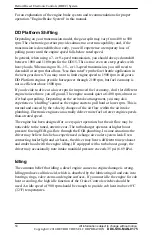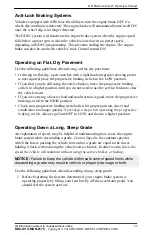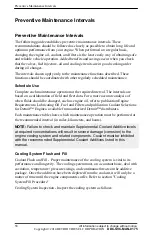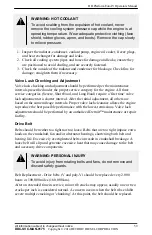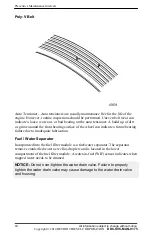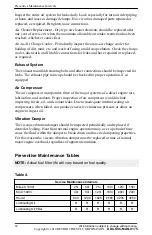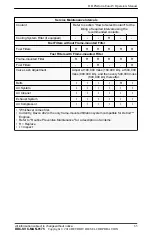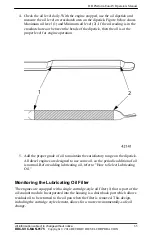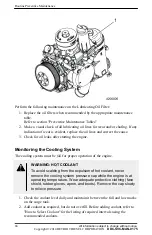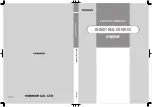
CAUTION: BRAKE FADE
To avoid injury, do not over apply the vehicle service brakes
when descending a long, steep grade. Excessive use of the
vehicle brakes will cause them to heat up, reducing their stopping
ability. This condition, referred to as “brake fade”, may result in
loss of braking, which could lead to personal injury or vehicle/
property damage or both.
2. Ensure the progressive braking switch is in the appropriate power position
(LOW/MED/HIGH).
WARNING: PERSONAL INJURY
Failure to keep the vehicle within safe control speed limits while
descending a grade may result in loss of vehicle control, which
could cause personal injury.
3. Do not exceed the safe control speed of your vehicle. Example: You could
descend a 6% grade, under control only at 10 mph (16 kph) without an
engine brake, but at 25 mph (40 kph) with an engine brake. You could not
descend that same hill at 50 mph (80 kph) and still expect to remain under
control. Get to know how much slowing power your engine brake can
provide. So get to know your engine brake system before climbing hills and
do not exceed a safe control speed.
4. Check your progressive braking switch often for proper position
(LOW/MED/HIGH), since road conditions can change quickly. Never skip a
step when operating the progressive braking switch. Always go from OFF to
LOW and then to a higher position when on slippery roads.
Operating on Wet or Slippery Pavement
Operate the engine brake system as follows:
NOTE:
Experience with the engine brake system on dry pavement is
recommended before attempting to use it on wet or slippery roads.
1. On wet or slippery pavement, start with the master switch in the OFF position
and use the gear you would normally use under these conditions.
Engine Brake System
54
All information subject to change without notice.
Copyright © 2014 DETROIT DIESEL CORPORATION
DDC-SVC-MAN-0175









